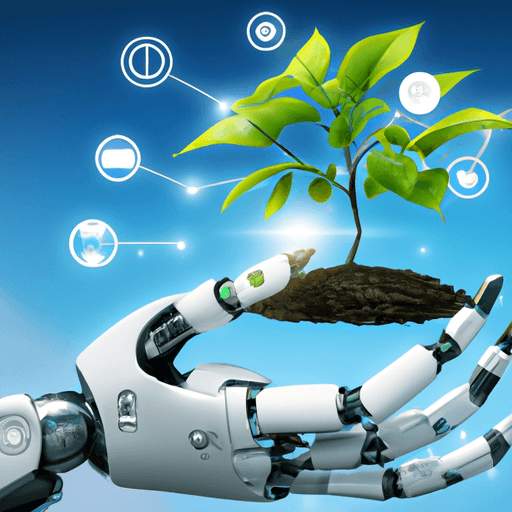Artificial Intelligence: A Catalyst for Sustainable Living
Artificial Intelligence (AI) is not just science fiction; it is becoming an essential player in promoting sustainable living. The potential of AI in managing resources efficiently, reducing waste, backing renewable energy sources, and endorsing eco-friendly practices is huge and is reshaping our approach to sustainability.
AI in Resource Management and Waste Reduction
AI makes it possible to manage resources more efficiently and reduce waste. Intelligent systems can analyze large amounts of data to predict demand and supply in various industries and alert sectors when it is the right time to scale production up or down, minimizing waste. Additionally, AI is being used in smart grids to optimize energy use in buildings, reduce energy consumption and costs.
Supporting Renewable Energy with AI
AI technologies play an even more significant role in the renewable energy sector, specifically in energy production and consumption. AI algorithms can predict the best times to generate energy from renewable sources like wind and solar. These predictions allow energy providers to produce only enough energy to meet current demand, thereby reducing waste.
Encouraging Eco-Friendly Practices
AI can also encourage more eco-friendly practices through the use of smart home technologies. Intelligent systems can control lighting, air conditioning, and heating according to the occupancy and utilization of a building, leading to cutting energy use and lowering CO2 emissions.
Real-world Applications of AI in Sustainability
Several companies are already applying AI in their sustainability initiatives. For instance, Google uses DeepMind AI to optimize energy use in their data centers, reducing energy consumption by up to 40%. Meanwhile, IBM's Green Horizon project leverages machine learning for air quality forecasting and management.
Benefits, Challenges, and Future Predictions
While AI comes with many benefits, such as increased efficiency and waste reduction, it is not without challenges. These include hurdles in data privacy and security, the need for large amounts of data for accurate predictions, and the potential job disruptions. Experts predict that as technology continues to evolve, we'll see more integrated eco-systems where AI, Internet of Things (IoT), and Blockchain work together to further enhance sustainability.
Combining AI with Other Technologies
AI, when integrated with other technologies like IoT and Blockchain, can boost sustainable practices even further. IoT devices can augment the data collection capabilities, while Blockchain can ensure transparency and security in the data being used by AI.
In conclusion, AI is playing a pivotal role in promoting sustainable living and holds immense potential for the future. Through efficient resource management, waste reduction, and support for renewable energy, AI is indeed a catalyst for sustainability.


















Comments
Leave a Comment